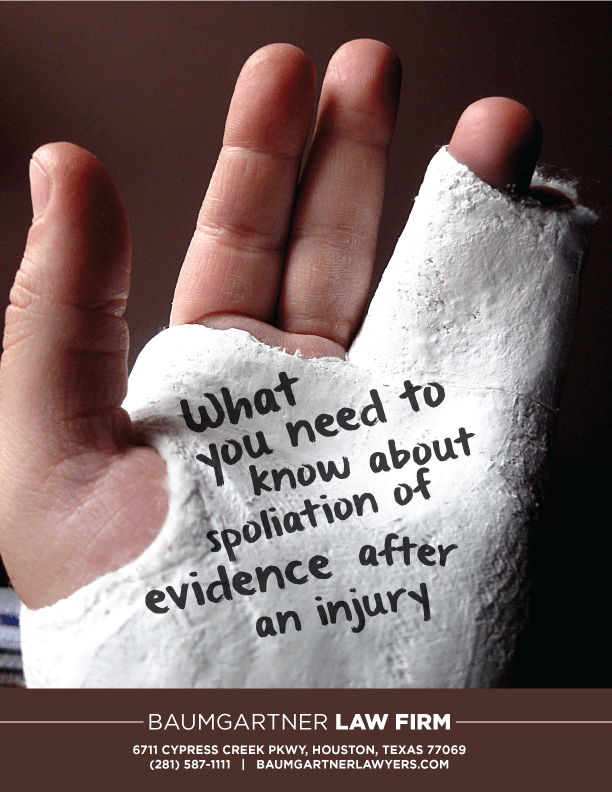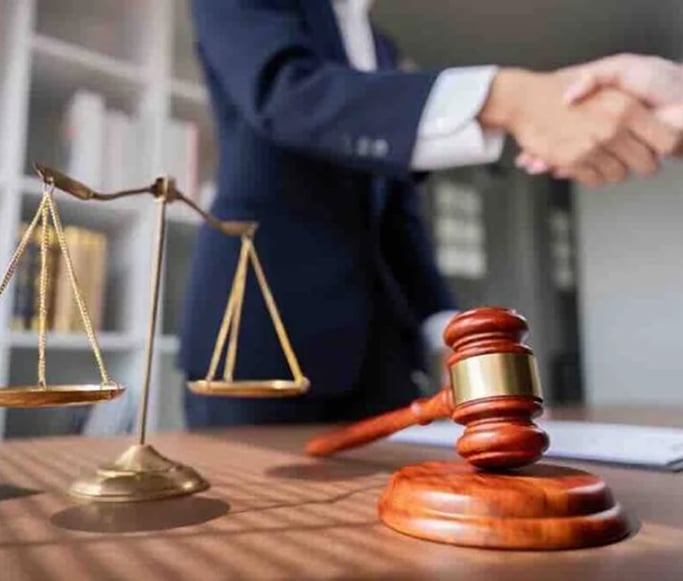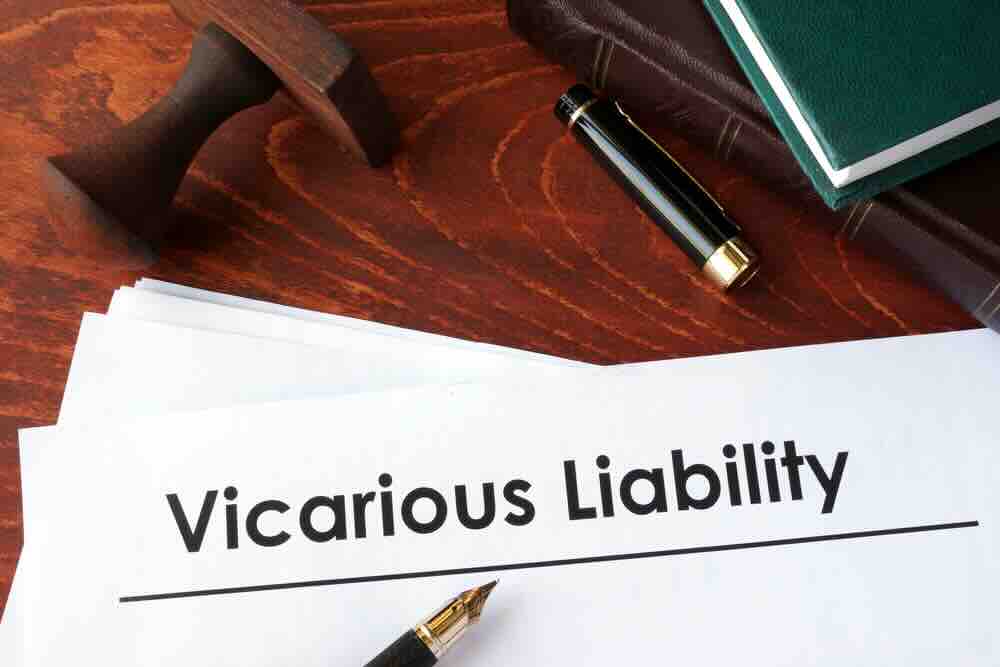What is Spoliation of Evidence?
In Texas, spoliation of evidence is the destruction or failure to preserve evidence in one’s possession when the actor knew or should have known that a claim would be filed and the evidence was material.
While many states have different remedies for the negligent or intentional destruction of material evidence, Texas has rejected the adoption of an independent tort for such conduct.
See Trevino v. Ortega, 969 S.W.2d 950, 960 (Tex. 1998).
Instead, Texas once addressed the issue by creating a presumption that evidence would have been unfavorable to the party that destroyed it. This inference has been well established in prior Texas case law. See John Deere Co. v. May, 773 S.W.2d 369, 377 (Tex. App.–Waco 1989).
However, a recent Texas Supreme Court case has altered the approach used in Texas and clarified how a spoliation claim should be handled, as well as the appropriate remedy to be determined. Brookshire Brothers, Ltd. v. Aldridge, No. 10-0846, 2014 Tex. LEXIS 562, 2014 WL 2994435 (Tex. July 3, 2014).
Texas Supreme Court Addresses Spoliation of Evidence in Texas
The Brookshire case involved a slip-and-fall, and the plaintiff alleged that the videotape of the scene was not properly preserved. Store cameras had videotaped the scene, and the defendant preserved the portion that showed the fall but did not preserve the portion preceding the fall that the plaintiff alleged was material to the case.
Ultimately, the plaintiff was awarded a sizable verdict, which the Court of Appeals affirmed and later reversed by the Texas Supreme Court.
In the Brookshire opinion, the court clarifies the rules in Texas for the destruction of evidence and sets forth a two-part analysis.
Ask- Did the Party Have a Duty to Preserve the Evidence?
The trial court in Texas must determine whether a party had a duty to preserve the evidence and failed to fulfill that duty. The reasoning is that this question is a question of law, and therefore, the court should decide the issue. Should the court find that spoliation did occur, it is up to the court to determine a remedy that is appropriate for the action.
The first step, determining whether or not spoliation occurred, should be conducted outside the jury’s presence. The court must find a duty upon the spoliating party to preserve evidence, and that the party either negligently or intentionally breached the duty to preserve the evidence.
According to the court, a duty to preserve evidence rises in Texas only when “a party knows or reasonably should know that there is a substantial chance of the claim will be filed and that evidence in its possession or control the material and relevant to the claim” Brookshire Bros. at 22.
If a Duty to Preserve Evidence Exists, Was it Breached?
If the duty is established, the party alleging spoliation must prove the other party breached their duty of reasonable care in preserving the relevant evidence.
It is upon the court to determine what the appropriate remedy should be in each case. Remedies should have a direct relationship with the actions they address. Considerations the court can utilize in its analysis:
- Relevance of the evidence to key issues
- Whether the evidence would have been helpful to the other party’s case
- Whether or not the evidence could be developed through other evidence
The Texas Supreme Court has stated that allowing a spoliation instruction is one of the harshest sanctions a trial court can use in determining whether the remedy is appropriate.
Brookshire at 30, and the instruction should be limited to situations where intentional destruction is found or, on rare occasions, where negligence irreparably prevents a party from having a meaningful opportunity to present a claim or defense.
Read More: Essential Steps to Take After a Car Accident in Houston
Limited Remedies in Texas for Spoliation Require Quick Action
Because your remedies in Texas for a defendant destroying vital evidence are limited at best, hiring one of the best personal injury attorneys in Texas is necessary. A lawyer can take action to discover evidence and force a defendant to preserve the material. Evidence of actions leading to punitive damages often needs quick effort to discover.
Why Get a Personal Injury Lawyer in Houston, TX, Right Away?
Personal injury victims will be well served by retaining counsel as soon as possible after an accident and ensuring that the attorney notifies the potential defendants to preserve evidence that may be material to proving the case. Victims should hire a truck accident lawyer in Houston as soon as possible for cases like trucking accidents. That allows the attorney the best opportunity to investigate the accident.
By providing proper notification and specifying which evidence should be preserved, the plaintiff should satisfy the first prong of the duty test. Likewise, personal victims should also preserve evidence that is relevant to a defense that may be claimed.
While many jurisdictions provide more severe sanctions for the intentional or negligent destruction of evidence, the Brookshire case has clarified the rules for dealing with failure to preserve relevant evidence.
Contact the Houston personal injury law firm of Baumgartner Law Firm at (281) 587-1111.
Baumgartner Law Firm
6711 Cypress Creek Pkwy
Houston, TX, 77069
Related Posts:
- How Hazardous Material Truck Accidents are Different from Other Truck Wrecks
- Essential Steps to Take After a Car Accident in Houston
- Safety Measures in Hazardous Materials Transportation to Avoid Accidents
- When Is It Too Late to Get a Lawyer for a Car Accident?
- How Duty of Care Affects Negligence Claims













